Write your awesome label here.
Confession Time
Let me start with my personal experience overthinking.
I’ve wasted so many hours, days, even weeks, replaying conversations in my head. Things I said, didn’t say, should’ve said. And don't even get me started on making decisions. I used to research things to death. Whether it was choosing what to eat on a menu or making a big life move, I’d drown myself in options, weighing them endlessly.
I’ve wasted so many hours, days, even weeks, replaying conversations in my head. Things I said, didn’t say, should’ve said. And don't even get me started on making decisions. I used to research things to death. Whether it was choosing what to eat on a menu or making a big life move, I’d drown myself in options, weighing them endlessly.
Does any of this sound familiar?
This is the trap of overthinking. And while it might feel like you're being responsible or thorough, what you're actually doing is avoiding action.
Why We Overthink
Have you ever replayed a conversation in your head, wondering if you sounded rude or foolish? Or maybe you’ve been stuck trying to make a “perfect” decision and end up making none at all? That’s overthinking.
At its core, overthinking is when you revisit unproductive thoughts without moving into problem-solving mode. You stay stuck in the loop, and it steals your time, energy, and peace.
Overthinking usually stems from fear. Fear of being judged. Fear of making the wrong decision. Fear that one choice could permanently mess up your life, which can feel paralyzing.
We tend to overthink in two main areas:
Social Interactions
- You replay what you said, wondering if you offended someone, sounded dumb, or came across the wrong way.
Decision Making
- You worry about making a mistake, aim for perfection, or just don’t trust yourself to choose wisely.
And all this leads to one thing: decision paralysis, and the inability to move forward because your mind isn’t given structure.
The breakthrough comes when you realize that overthinking is not planning or preparing. You’re just stuck replaying what went wrong, what could go wrong, or what might happen. And the irony is, the longer you stay in overthinking mode, the further away you move from actual progress.
4 Strategies to Stop Overthinking (That Actually Work)
Let me walk you through four tools that have helped me, and now help my clients, to deal with overthinking and improve decision making.
Strategy #1: Timebox Your Decision
This one has changed my life personally and professionally. If you want to overcome overthinking and stop drowning in analysis paralysis, set a deadline. Give yourself a set time to decide, whether it’s one hour, one day, one week, depending on the decision.
This helps you move from indecision to action. Without a timeline, your brain will keep searching for more information, more validation, more reasons to not decide. But more information doesn’t always lead to better decisions. In fact, it often leads to more overwhelm.
When you set a decision deadline, you are telling yourself: “I trust that I can handle whatever comes next.” This exercise in self-trust alone can reduce overthinking and improve your decision making process.
Strategy #2: Use the 5x5 Rule
If it won’t matter in 5 years, don’t spend more than 5 minutes on it.
Sounds simple, but this has been a powerful filter for me when I’m getting stuck in the small stuff (minutia).
Sounds simple, but this has been a powerful filter for me when I’m getting stuck in the small stuff (minutia).
Most of what we stress about is temporary. The email you forgot to send. The awkward thing you said at lunch. The typo in a text. These are not life-defining moments.
Using the 5x5 rule helps you zoom out and keep things in perspective. It’s a tool for problem solving by quickly separating the urgent from the important. It helps you stop overthinking minor issues so you can save your mental energy for what truly matters to you.
Enjoying the Read?
Weekly Mindset Newsletter
Get personal stories, decision-making strategies, and mental frameworks to help you stop overthinking, build self awareness, and live with more clarity.
Thank you!
Strategy #3: Reframe Your Thinking
One of the biggest reasons people overthink is fear of making the wrong decision. But what if there’s no such thing as a wrong decision, just decisions that either work or teach you?
That’s where reframing comes in. Instead of seeing decisions as win or lose, see them as lessons or wins. This one mindset shift has helped me overcome decision paralysis so many times.
When you take the pressure off needing to be perfect, you allow yourself to move forward. You build that self-trust. You learn. You grow. And with every decision you make, you’re improving your problem solving and decision making skills.
Strategy #4: Practice Mindfulness
Mindfulness isn’t about sitting still and doing nothing. It’s about becoming aware of your thoughts while you’re intentionally thinking through them.
When you start noticing your mind spiraling, mindfulness gives you the power to pause, reflect, and choose a different response. You can switch from overthinking to taking action. You can jump out of your own head and focus on what’s within your control.
Mindfulness helps you see your thoughts for what they are: thoughts. Not facts. Not truths. Just passing mental activity. The more aware you become, the easier it is to notice and deal with overthinking when it shows up.
You’re Not Broken, You’re Just Stuck
Overthinking doesn’t mean you’re weak. It just means your brain is trying to protect you from pain, rejection, or regret. But the thing is, staying stuck is its own kind of pain.
Every moment spent in decision paralysis is a moment you’re not fully living.
You don’t need to be fearless. You just need a strategy and the courage to override your brain’s relationship with fear. Use one or all of the tools above by setting deadlines, using the 5x5 rule, reframing failures as opportunities to learn, and practicing mindfulness. You’ll be surprised how quickly things start to shift.
You’ll start solving problems instead of spinning in them.
And start moving forward.
With each decision you make, you’ll build more self-trust, confidence, and momentum.
Thanks for reading. If this helped you, share it with someone who’s caught in an overthinking loop. You never know; your share might be the thing that helps them break free.
Sincerely,
Dexter Lam

Do you want to level up and change your life Trajectory?
We're launching our course on Emotional Intelligence
Thank you!

